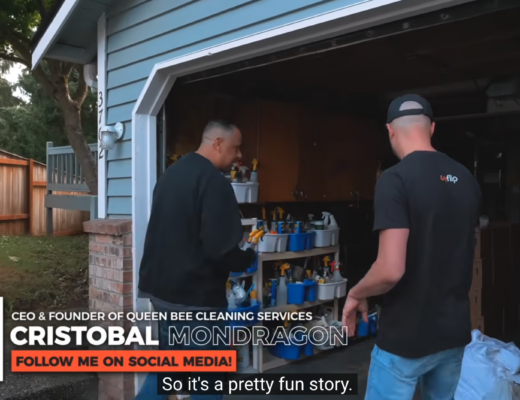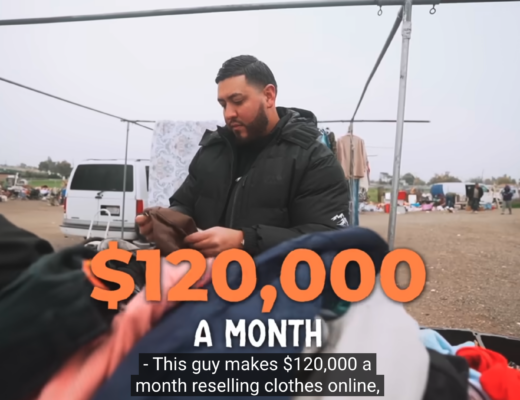Before graduating college, I won over $20,000 from business competitions, pitched my idea to Mark Cuban, traveled for free, and rang the bell at the New York Stock Exchange. I often reminisce and wonder…how the heck did I do that?! Those accomplishments were the result of amazing opportunities I took advantage of, and you can too.
The common denominator was my participation in business competitions. Aside from the monetary aspect, competitions have afforded me surprisingly awesome opportunities, such as the ones mentioned above. Competitions are not for the faint of heart. Your ideas are often rejected and you’re left questioning their validity. The thought of entering can be scary. The most common fears include:
What if I lose?
I suck at public speaking.
I can’t write a business plan.
I don’t have a good enough idea.
Those are all just excuses. In order to succeed you need self-confidence. If you don’t have it yet, fake it until you make it. You need to be your biggest cheerleader and you cannot allow rejection to affect you negatively. Think about it this way, you only need a few big wins, and there are always tons of competitions. Focus on the opportunity, the people you’ll meet, and the skills you will develop.
I’m going to share reasons why you need to be competing and strategies on how you can win.
Craft a Good Business Plan.
Crafting a detailed business plan is essential. An executive summary may only be required for some competitions, but it’s best to just bite the bullet and write a full plan. Your plan needs to be ready so you can be continuously applying.
My secret to crafting a good business plan is simple, but too often people overlook the simple things…be creative! Make it stand out, perhaps do an interactive business plan where the judges can scan a QR code and be taken to a live demo or video of your product. Be innovative in all sections of the plan, like your marketing strategy, use other outlets besides the obvious social media sites such as Facebook and Twitter. At the end of the day, just be authentic and let that shine through on your plan. It’s your first and potentially last impression.
Speaking of being creative, check out this video entry my previous business partner and I did for a college competition:
Do not be afraid to embarrass yourself or even be a little cheesy. YOLO right?
There are tons of resources available online that will guide you on your journey to writing a business plan. Start by checking out this website. You can also visit your local SBDC center, which offers free business plan advice.
Get a Quick and Dirty Mockup of Your Idea
KISS (Keep It Simple Stupid). If you don’t already have an idea developed, do not kill yourself trying to get it created for the competition. Several competitions only require an idea and it does not necessarily have to be currently available to the public.
I suggest creating a Slideshare presentation of your concept, do a rough sketch, or get a quick mockup for five bucks from Fiverr
Time to Apply
Now that you have your plan and mockup done, the next phase is submitting! It’s time to get your inspector gadget on, and begin scouring the web for competitions. You can start with these sites:
http://bizplancompetitions.com/
http://studentcompetitions.com/
Try a combination of keywords when searching on Google for competitions, such as:
Pitch Competitions
Innovation competitions
Student competitions
Be sure to pay attention to the ads on Google, because some competitions pay for ads as well. Periodically check the blogs of big tech companies like Intel, Microsoft, or Dell. They often run competitions to fund innovative ideas. There are several types of competitions you can get involved in, ranging from public speaking to coding. They are a great way to build your brand. You’re seen as an authority in the field once you’ve won or were a finalist.
Another perk is that a lot of the time when you win money, it’s equity free! Therefore, you don’t have a bunch of investors breathing down your neck, and you can technically do whatever you want with the money (depending on the competition).
You’re in the Finals!
Now that you’ve made it to the finals, it’s time to leverage that opportunity. Be selfish. Think ME ME ME. Think about how you can use the opportunity to your advantage. Make the most out of the competition so much so that even if you don’t win, you’ve made several connections that it’s almost equivalent to winning first prize.
How to Leverage Competitions
Free Training
Learning new skills can be costly, but when I was a finalist in a competition, I was assigned a personal coach in my city and received free training until presentation day. Be sure to participate in any pre-competition activities, because they often have optional training sessions or online seminars to better prepare you.
Competitions are also the best way to practice public speaking skills. You will always have an opportunity to be in front of a crowd. When you’re not presenting and there’s down time, you are constantly talking and meeting people, which forces you to condense your idea into a 30 second elevator pitch. You learn how to speak more confidently and concisely.
Check out a few presentations I’ve done:
I’ve had a lot of practice speaking in front of a crowd and camera. However, it still makes me nervous, but I know with every presentation I’m improving.
Besides the worst has already happened, I’m sure you noticed that in the first video I messed up; messing up is not the end of the world. If you ever do, just keep going. Moreover, public speaking isn’t the only skill you can acquire from competitions, there are several skills you can pickup such as business plan writing, powerPoint design, etc.
Network
It’s crucial that you take advantage of every opportunity to network. I stress this because I competed in a competition a few years ago, and ended up winning 2nd place. I kept in touch with the winners, and a few years later when I reapplied, the judge was the guy that beat me in the competition a few years ago. I had no idea he was going to be a judge. Although we received a perfect for score from most of the judges, it was comforting to know that we had someone in our corner from the start.
This brings me to my next point. The most important people you need to meet are the judges. After the competition, go and talk to them and get their contact information. Learn more about them; they’re judges for a reason, right? These could be potential investors or mentors.
The thought of networking made me really nervous. I didn’t know what to say or how to create a mutually beneficial connection with someone. I wanted to show that I had something of value to offer in return, and not have it seem like I was only trying to take from them. Through more experience and practice I got increasingly better at networking. I even wrote a free guide in which I share strategies on how to network with big shots.

Idea Validation
Competitions are the best way to validate an idea. You receive immediate and honest feedback on your presentation and idea when you present in front of the judges. They bombard you with pressing questions and pick apart your presentation to the bone. Once it’s all said and done, you’re left with a bucket of feedback on your business. One time, the feedback I received completely changed my idea. I took the judges suggestion and shifted my idea from being web based to mobile based. Competitions also give you a platform to share your idea with hundreds of people. That’s free promotion! The people in the audience are your beta testers. Keep that in mind!
Apply as Many Times as You Can.
There’s no shame in my game…and there shouldn’t be in yours either. Being fearless and not caring about what people think is powerful. I applied to a competition for three years in a row until I won first place! I was a bit embarrassed hoping the competition organizers weren’t sick of me thinking,“ohh here she goes again!” I’m glad my pride didn’t stop me from continuously applying. Remember, a “no” only brings you closer to a “yes.” You will get a lot of “no’s,” but have the resilience to continue despite that until you get a yes.
First time I applied:
I received second place, walked away with $2000, and a free trip to Atlanta.
The final time I applied:
Two years later I won first place, walked away with $10,000, and another free trip to Atlanta! Good luck on your journey to becoming a business plan champ! Keep in mind that persistence, resilience, and creativity will take you far!
Alicia T. Glenn shares her experiences and advice on how to accomplish cool things through discovering and pursuing your passion on her blog. Join her free newsletter to get business ideas, life hacks and strategies on how to live a more fulfilled life. Grab my free Success Hacking Guide to learn more about networking, winning money for your ideas and how to discover your passion.






